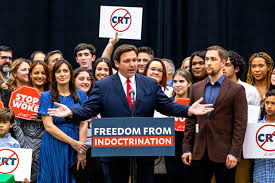#SATSoWhite??
- Elizabeth Breau

- Feb 9, 2023
- 3 min read

When I was writing my book, History According to SAT, I drew on my memories of all the SAT passages I had read since I began teaching SAT English in 2009. In honor of Black History Month, I thought I’d take a look at how often recent SAT Reading and Writing passages are by or about African Americans. I reviewed twenty SAT practice tests from between 2019 and 2022, and found only three Reading passages that are by or about African Americans: a biographical passage about the eighteenth-century enslaved African American poet, Phyllis Wheatley; an excerpt from Frederick Douglass’ 1852 speech, “The Meaning of the Fourth of July to the Negro”; and an excerpt from Rita Dove’s 1987 novel, Through the Ivory Gate.
At first glance, three out of twenty doesn’t sound so bad. However, each Reading test contains one literature passage and one or two history passages, so we’re really talking about a total of three passages by or about Black people out of a total somewhere between forty and sixty passages. Also, Rita Dove is not identified as an African American writer, and the passage contains no reference to race--even though the book’s protagonist is African American--and students who have not heard of Dove may assume that the character is white.
There are also four passages on each Writing test, making a total of eighty. Again, I only found three Writing passages about explicitly African American subjects: Nina Simone, the origins of Black History Month, and a discussion of a speech that Martin Luther King, Jr. gave in Kingston, Jamaica in 1965.
Debate in Florida over the content of an Advanced Placement African American Studies class and the more generalized attacks on “critical race theory” have made the teaching of any African American content more controversial than it has been in at least half a century. I was an eleventh-grader in 1982, when I took a Black Literature elective that included Native Son, Invisible Man and The Autobiography of Malcolm X. Today, however, I worry that the attacks on a greater African American presence in academic content have caused many teachers and content developers in the test prep industry to shy away from including such texts in their curricula.
The Brookings Institution reports that Black students still earn consistently lower scores on the SAT than any other demographic except Native Americans (more on that another time). It seems to me that the near-total absence of African American voices and content in SAT practice tests might also depress the scores of African American students--if only because it is inherently depressing to feel unseen and unheard.
This issue is not new. In the 1980s, concern over the lower scores of African American students on the SAT led to criticism that the test’s content was racially and economically biased. Content that required knowledge of privileged activities like horseback riding, with its complex vocabulary of equine anatomy, gaits, and tack, was replaced with material that a more diverse swathe of students might be familiar with. We need similar reforms today.
Education is supposed to provide every American with an equal shot at the American Dream. However, a student whose history and literature are absent from educational materials will feel less welcome than one whose background is reflected. The assault on all things African American in our educational system should concern all educators because it tells our Black students that they are unwelcome in our democracy.
*Critical race theory is a cross-disciplinary examination – by social and civil-rights scholars and activists – of how laws, social and political movements, and media shape, and are shaped by, social conceptions of race and ethnicity (Wikipedia).
Elizabeth Breau, Ph.D., is a private English tutor and the author of History According to SAT: A Content Guide to SAT Reading and Writing. Her website is historyaccordingtosat.com. She can be reached at elizabeth.breau@gmail.com.
.webp)



Comments